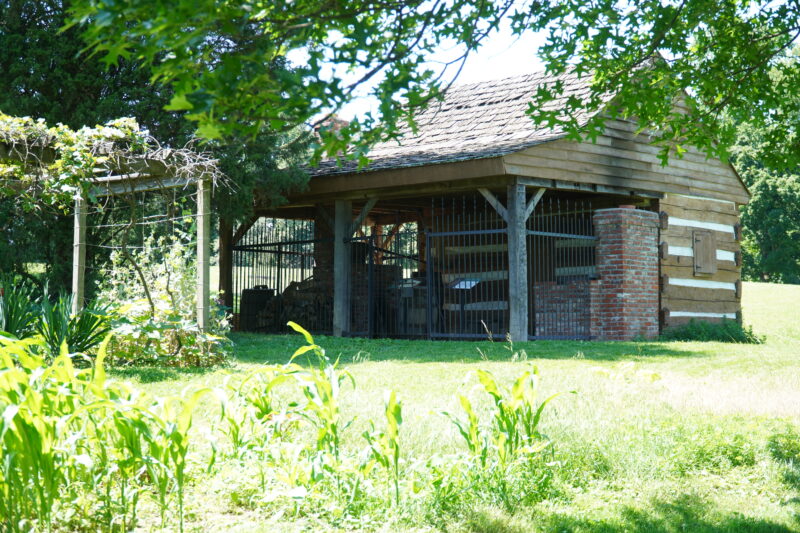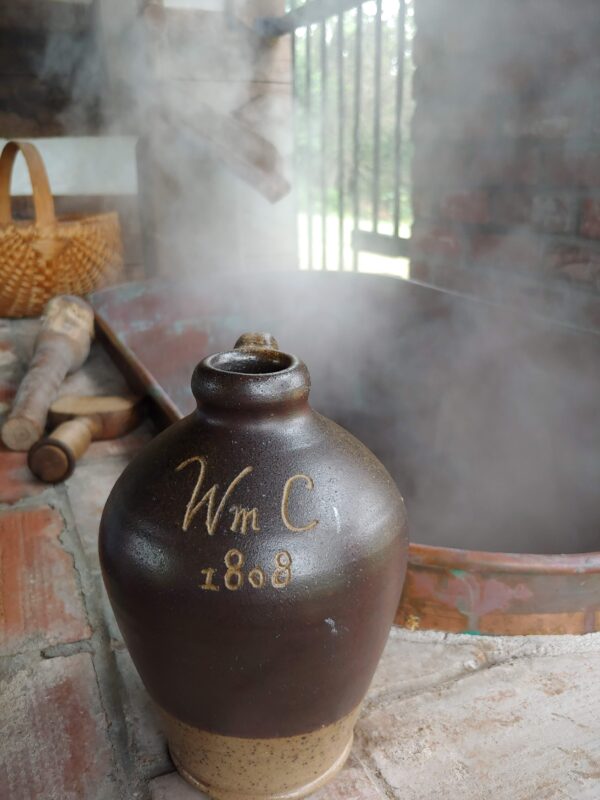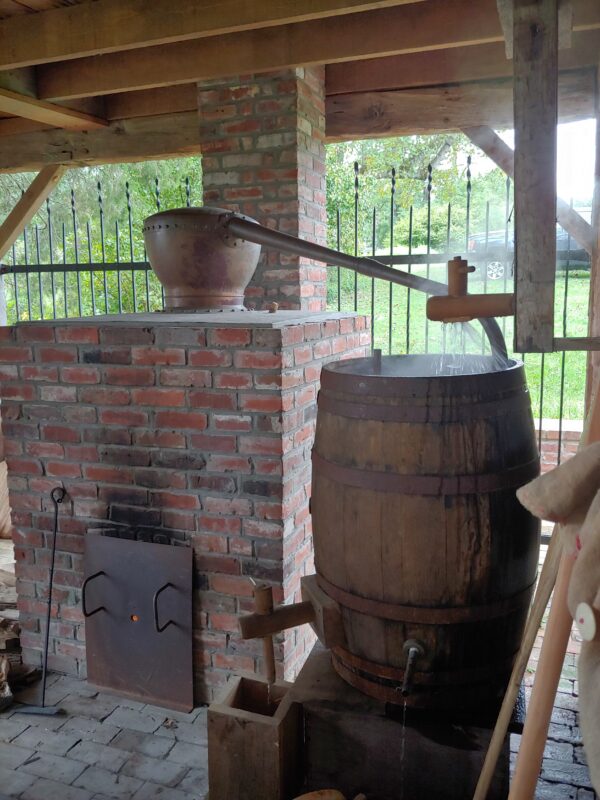Farm Distillery
Kentucky farms and estates like Locust Grove often included a small-scale farm distilling operation that turned grain and fruit into whisky and brandy, preserving the crop for use on site or for neighborhood sale or trade. William Croghan, Locust Grove’s first owner, operated a grist mill at the edge of his property, along Muddy Fork. A distilling operation would likely have been next to the mill, on property no longer part of this historic site, so we have re-created it here. This farm distillery shows the origins of what later became an important Kentucky industry.
William Croghan, Locust Grove’s owner, had a share in the purchase of a 66 gallon copper pot still in 1808. Our still (70 gallons) is authentic to the style of the era.

This log structure at the end of the garden is the farm distillery. In 1808, William Croghan was involved in purchasing a 66 gallon still. Locust Grove’s distillery may have been located near the farm’s mill. This mill site is no longer on Locust Grove’s property, so this distillery building is a reconstruction meant to represent this industry on the farm.
The roles of the mill and the distillery were intricately connected to each other, as the grain from the mill could be turned into whiskey in the still and the water from the millrace could be used to cool the still’s copper coil, causing the condensation of the distilled liquid.
The Locust Grove distillery likely produced whiskey and brandy. Both were most likely not aged in a barrel but consumed in their clear form, known as “new make”. Corn and wheat were the most popular grains for whiskey production in Kentucky during the early nineteenth century. The whiskey produced by the Croghans was not yet bourbon, but rather the Kentucky whiskey that would evolve into Bourbon. We know that William Croghan had fruit orchards and the distillery was a way to make the most of produce that might otherwise spoil.


The still was likely operated by enslaved workers, particularly enslaved women. The still could also be rented by other area farmers in order to process their own grain and fruit. The Croghans could have also hired a skilled distiller. The Croghans did not require a distillery on their farm to obtain alcoholic beverages. While they likely consumed some of their own product, household accounts show they purchased other beverages, such as Madeira wine, rum, and whiskey. The distillery would have served an important function by providing a way to process grain and fruit, and the whiskey and brandy produced could be sold to benefit the household economy.
